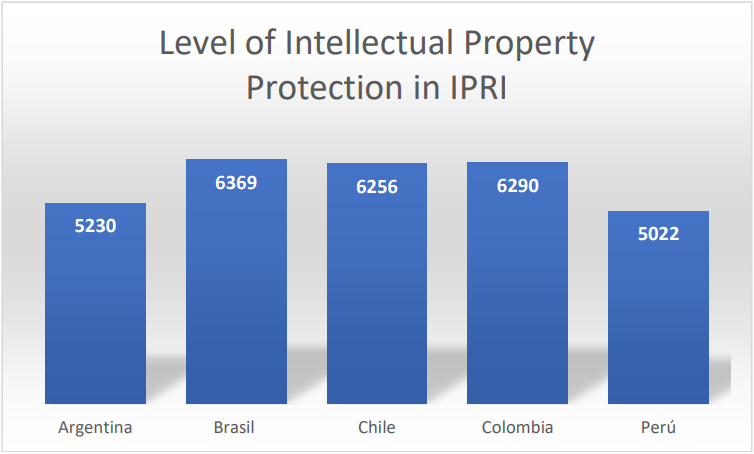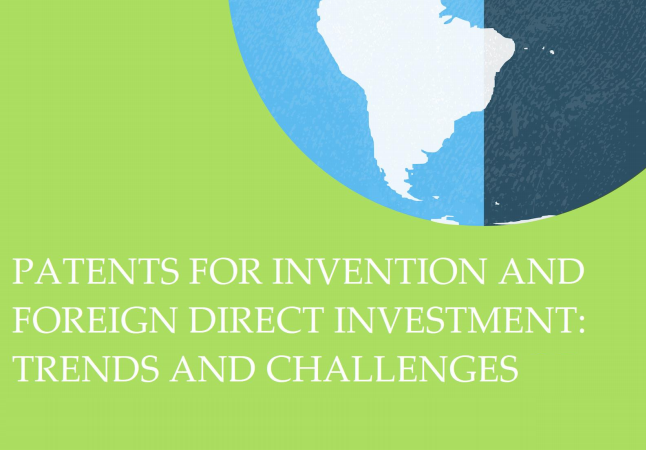Patentability Affects Rates of Innovation and Foreign Direct Investment
Recently Argentina hosted the G20 Leaders’ Summit attended by U.S. President Trump and Xi Jinping of China. Through the leadership of the U.S. president, the agenda prioritized the protection of intellectual property rights in international trade.
The summit was made historic by the signing of the new North America trade agreement, which has by far the strongest protections of intellectual property rights, and by negotiations between the U.S. and China that centered on enforcing intellectual property rights and reducing trade barriers.
In the background, Argentina was doing its part.
A new paper was released at UCEMA university by Pablo Iannello, professor of law at the University of Dayton, at an event on the role of intellectual property in the economy.
El Dr. #PabloIannello presenta su paper “Innovación y la Reforma de Patentes en Argentina. Cómo atraer más Inversión Extranjera Directa en Argentina 🇦🇷”, en el marco de la presentación del #IPRI2018 de la @PRAlliance, editado por su Director Ejecutivo @lorenzmontanari. pic.twitter.com/GoiLM7EJLH
— Garret Edwards (@GarretEdwards) November 29, 2018
It’s fitting that the paper (see it here in English and Spanish) was released amid the G20 event, but also because Argentina is still recovering from decades of failed socialism and a closed market economy that attempted to force innovation through import substitution policies
In fact, last year Argentina’s former foreign minister Susana Malcorra remarked at a similar event that Argentina has a “masters, doctorate, and a post-doctoral degree in protectionist, nationalist and populist policies and we see that it does not work.”
As described in Ianello’s paper, for a time Argentina had on paper minimal IP policies, it even signed on to international agreements like the Trade-Related Aspects of International Property (TRIPS) agreement administered by the WTO, but foreign investment and innovation did not follow. They were only the minimum protections
The paper traces the history of patent laws in Argentina and how they have impacted Foreign Direct Investment. Several factors can impact FDI besides IP protection, as Ianello notes, but suggests specific laws like INPI 283/2015 that limited patentability of biotechnology innovations may have played an important role in slowing rates of innovation in the country.
During the UCEMA event Dr. Jorge Otamendi, IP expert and partner at G. Breuer, pointed out this fatal flaw stating “if you can’t patent it, there’s no incentive to invest”
El Dr. #JorgeOtamendi denuncia las deficientes resoluciones del Gobierno anterior en lo que refiere a #PropiedadIntectual. “Si no se puede patentar no hay incentivos para invertir”. Todo eso lo hace durante la presentación del #IPRI2018 de la @PRAlliance. pic.twitter.com/9GcYBMZDgu
— Fundación Libertad (@FundLibertadRos) November 29, 2018
Ianello finds, in recent years, the “level of patenting is reactive to investment.”
Such laws that weaken IP rights allow Argentina to stay within the TRIPS framework and retain a consistent (though mediocre score) in the International Property Rights Index, but can actually have an outsized effect on the economy.

Ianello recounts when Argentina cloned its first cow “Pampita” in the early 2000s only nine other countries had the same technological capacity to carry out similar research, yet biotechnology patent applications have remained between 2 and 6 percent since the 1990s.
Similarly, in 2012 Argentina’s Ministry of Industry limited patentability of pharmaceuticals. The intention was to increase affordability by making sure branded medicines would face generic competition. However, it backfired greatly. Ianello notes, “these resolutions affected not only the private sector activity but also many public research programs.”
Click here to read the full paper in English / Spanish) and dive deep into how Argentina’s intellectual property laws have affected the agricultural, pharmaceutical, and software industries.

